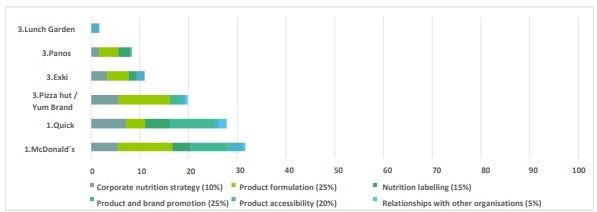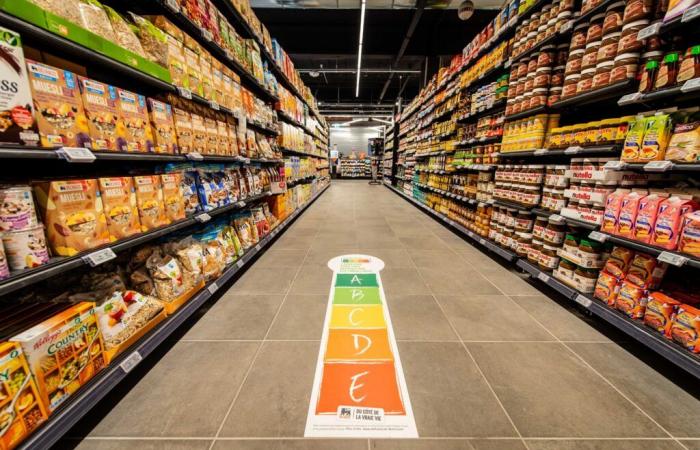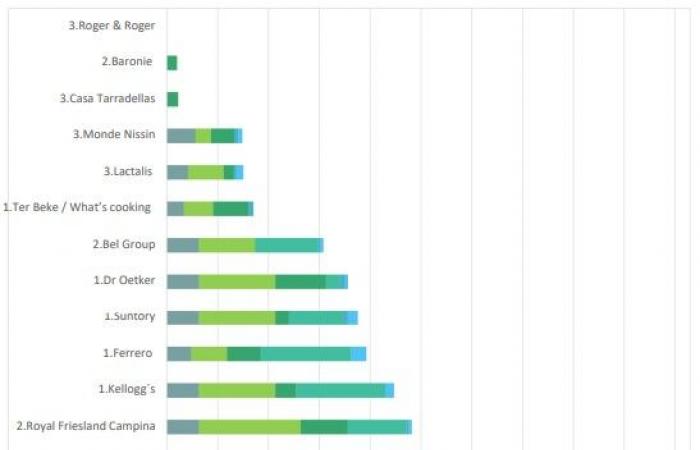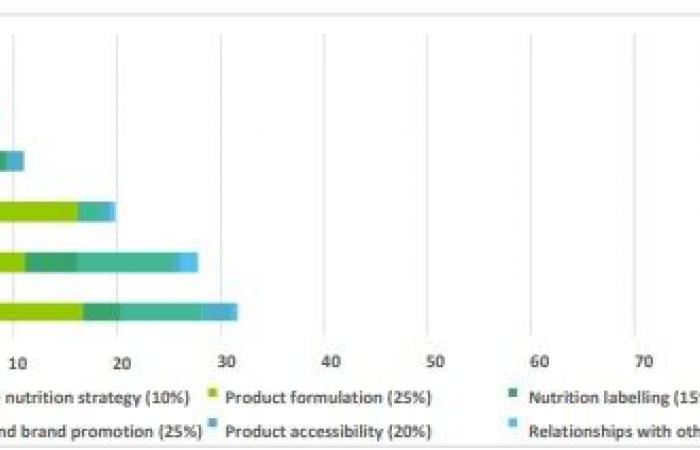Supermarkets, food manufacturers and fast food chains are making little progress on health and sustainability, according to a study by health institute Sciensano.
“Take action”
Unhealthy eating environments are a major contributor to overweight and obesity. Furthermore, the Belgian food system is responsible for around 20% of total greenhouse gas emissions. This is why, for the second time, Sciensano examined the commitments of 33 supermarkets, fast food restaurants and food producers in terms of nutrition, health and sustainability.
The first study took place in 2019, but the institute has not seen much improvement since then: “Progress generally remains limited,” says researcher Stefanie Vandevijvere. “Others have regressed. In general, the food environment remains unhealthy, which promotes unhealthy eating habits. It is therefore up to the authorities to take measures to make it healthier. »
Healthier private label brands
In supermarkets, the study notes a constant improvement in the nutritional quality of private label products. However, unhealthy foods remain predominant. In fast food chains, improvement is very limited: more nutritional information on meals is available, but commitments to reduce marketing of unhealthy meals are still lacking. In addition, the offer of fast food in Belgium has increased considerably. Among food and beverage manufacturers, the information on labels has improved, but the composition of food products has generally not become healthier.
In terms of sustainability, however, many companies perform better. This makes sense, explains Stefanie Vandevijvere: “For sustainability, there is an economic incentive: reducing energy or packaging material helps reduce costs for companies. » For health, this economic stimulus is generally absent. The study also highlights that there is no link between the scores obtained for sustainability and those obtained for healthy eating.
Divergent results
Which companies are leading the way? Among supermarkets, Delhaize leads, with a score of 65%, followed by Colruyt (53%) and Lidl (51%), while Aldi (42%) and Carrefour (41%) lag behind. The sector’s mediocre median score (51%) shows that substantial improvement is needed, Sciensano says.
Among manufacturers, Danone leads the ranking, with a score of 82%, followed by Nestlé, McCain and Coca-Cola. However, the scores vary considerably: Roger & Roger, manufacturer of snacks for private brands and under the Croky brand, obtained a zero score across the entire ranking. As a result, the median score was only 45%.
-McDonald’s is the top performer in the fast-food class, with a score of 32 percent, while Lunch Garden, recently declared bankrupt, is last with just 2 percent.
Necessary regulation
Sciensano concludes that appropriate regulation by governments is necessary to make progress on health, starting with the most poorly rated sectors and areas, such as fast food or advertising that still too often promotes unhealthy foods and often targets children.
“These measures, already recommended by the Higher Health Council, would have a significant impact on public health while being inexpensive,” says Stefanie Vandevijvere.
Supermarkets
Manufacturers
Fast food









